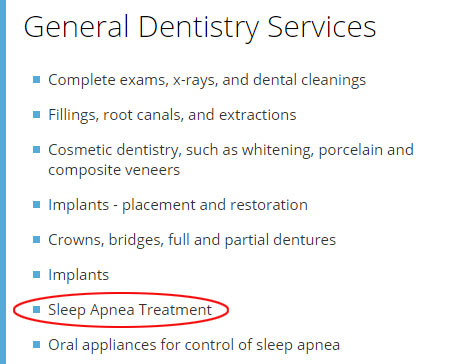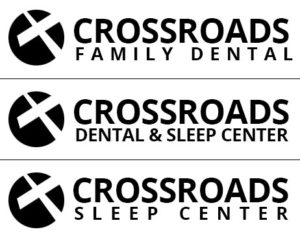If you want to effectively position yourself as the go-to sleep apnea expert in your area, a single page about dental sleep on your main practice website probably isn’t sufficient.
For someone looking for sleep apnea treatment, ChicagoSmilesDentistry.com/sleep won’t instill the same level of confidence as ChicagoSleepSolutions.com. It’s easy for patients to make the connection between crowns and veneers. It’s much harder to associate general dentistry and sleep apnea treatment.
When a prospective patient comes to your website you want them to immediately think, “they’re experts. I’m in the right place.”
Put yourself in your patient’s shoes.
 Imagine that you have been named the defendant in a civil lawsuit. Your immediate response is “I need to find a good attorney to represent me.” You go to Google and search for attorneys in your area.
Imagine that you have been named the defendant in a civil lawsuit. Your immediate response is “I need to find a good attorney to represent me.” You go to Google and search for attorneys in your area.
One of the first results takes you to the website of Barnes & Goletti. Under the heading “Areas of Practice” is a bulleted list outlining the various types of law they practice: business and corporate law, construction law, labor law, intellectual property law, family law, estate law, civil & criminal defense, oil & gas law, probate and taxation. A little of everything.
Next, you click the Google listing for Patel & Newton. On their website, you immediately notice the heading “Help with Civil Litigation Matters.” Just below that you read, “When you face a civil lawsuit, only trust experienced attorneys dedicated to civil defense.”
Which attorney are you going to feel more confident hiring? The obvious choice is the second, Patel & Newton. Why? They are positioned as experts in civil defense. The first office appears to be a jack-of-all-trades. It’s reasonable to assume the first firm is competent in all of the areas they have listed. Yet, you would likely conclude that they can hardly have expertise in all of them.
With this concept in mind, wouldn’t it make sense that a patient searching for “treatment of sleep apnea” would make the same assumption when they land on a dental website and sleep apnea is one of 20 things listed on the Services page?
Medical vs. Dental Mindset
Additionally, when a patient visits your office to discuss treatment of OSA, you want them in a medical mindset.
There are a few reasons for this. First, you’ll be discussing and billing their medical insurance, not dental insurance. Second, case acceptance is likely to be higher if they view this as a medical appointment vs. a dental appointment.
When a typical patient visits a physician the interaction looks something like this; physician walks in, asks a few questions, quick exam and they start prescribing. “Take 40 mg of this, have these tests done at this lab and come back and see me in two weeks.” They hand the instructions to the patient and what does the patient do? Typically, exactly as instructed.
To a physician, the concept of “case acceptance” is foreign. Yet in dentistry, case presentation and getting the patient to accept treatment is given a lot of attention.
When you’re treating sleep apnea, you’re discussing a medical condition with several medical-related comorbidities.
You want them thinking medical, not dental.
Positioning & Marketing Your Dental Sleep Brand
 In addition to your website, you should also consider the name of your sleep practice.
In addition to your website, you should also consider the name of your sleep practice.
To avoid the confusion of “dental sleep” and to have the patient focused on medical, not dental, we recommend not having “dental” in the name of your sleep practice or your website address.
This also applies to your logo. You don’t want the word dental, nor do you want dental imagery anywhere in your sleep practice logo.
Not that you want to hide the fact that you’re a dentist. Once they’re in the office and you have an opportunity to discuss the advantages of oral appliance therapy and the training you’ve received in treating sleep apnea, there isn’t a problem with making it clear that you’re a dentist. It’s simply a matter of positioning and avoiding confusion.
If you’d like to discuss branding your sleep practice and effective direct-to-patient sleep marketing strategies give us a call at 800-506-9817.